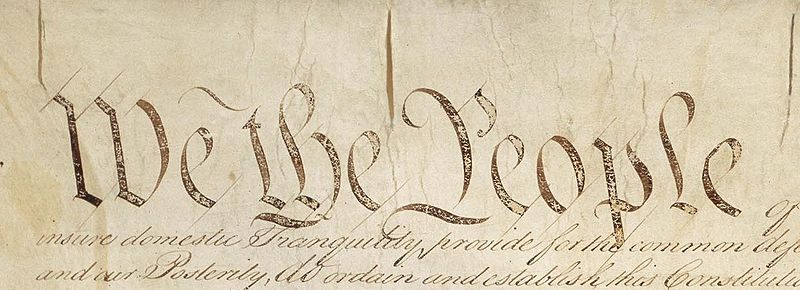Rumor-busting: Student rights in school
May 4, 2018
Earlier in the semester school resource officer James Slack and student liaison Josh Kennedy spoke with Kristine Volesky’s Business Law for Personal Use class. While discussing the topic of the Fourth Amendment rights in the school, Kennedy asked the class what they know about searching and seizure. A senior Blake Stanton shouted out to the class “We don’t have any rights when we’re in school.”
Volesky’s law class students learn about a variety of things ranging from personal law, what rights students have and business law.
Contrary to the student’s statement in law class, students do have rights when in school. They are the constitutional rights or civil liberties that every person has, and just because school is in session does not mean they are taken away. Sometimes we hear stories regarding rights within the school. Here are some facts.
Search and seizures
Rumor: the school can search you, your car or locker whenever they please.
Truth: Johnston is a zero tolerance campus for tobacco, alcohol and weapons and that applies to everyone who steps foot on the property. Administration has the right to punish students that do not follow policy. “When it comes to search and seizures we have reasonable suspicion,” Assistant Principal Jerry Stratton said. “Police officers have probable cause, so his level ( Slack) of what he has to reach is much higher. For Slack, sight, smell and sounds could cause you to have your car searched.”
Slack could approach a student’s car with no substantial evidence other than rumors that a student may have a gun in their car. However, he would have to obtain a warrant before issuing the search. He (Slack) could detain the student until the warrant is received, but Slack must have proved some probable cause.
Stratton would be able to search students without obtaining a warrant if he has reasonable suspicion. He gave the example of being able to search students who exited a bathroom stall that emitted smoke. “I don’t need a warrant to search the two students, smoke is enough for reasonable suspicion,” Stratton said.
Slack could be present during a car search. “From a safety standpoint, you never know when you go out to a car what you may have to deal with,” Stratton said. “It’s as much as making sure the student is safe plus myself. The only time I’ll get him involved is when I’ve already found something.”
Final Verdict: The school needs a whole lot less to be able to search your bag, car, locker, or even you yourself compared to police. Reasonable suspicion has fewer qualifications than probable cause so be careful if you are 18 and use tobacco products. Just because you are legal in the eyes of the law doesn’t mean it is legal here at school.
First Amendment rights
Situation: In the student and parent handbook there is a section that says no walk-outs, sit-ins or any form of protesting so why did administration let the school go through with the walkout?
Truth: Because the walkout in April was a nation-wide event, the school decided to allow students to participate although according to the handbook the school could have said they were truant and given them an unexcused absence.”We knew it was probably something that was coming so the question was how do we work with the student body to make sure it was a safe environment,” Stratton said. He said allowing the protest gave students an opportunity to learn about the First Amendment.
The school wanted students to be able to participate in the national event as it was something that students and the nation were passionate about.
Final Verdict: The national event and our right to free speech are the main contenders of why we were able to participate. Administration’s main job is safety, so precautions and measures are taken when planning something that has the chance to become something more violent.
Another First Amendment rights example
Situation: How far do staff and students’ freedom of expression rights go?
Truth: Some people were concerned during the walkout when a Confederate flag was displayed outside. This led to questions about what flags could be flown at school and why teachers are able to display Pride flags in the classrooms. The limitations of expression also apply to clothing.
Final Verdict: Students have freedom of speech but disruptions to the school day and students’ learning caused by free speech, which could include flags or clothing, can be restricted or limited. Restrictions are not limited to the student body but staff as well if something they are saying or doing causes a significant disruption.
Pregnant students’ rights
Rumor: When a female student becomes pregnant the school district forces them to leave until they give birth, or until they are not pregnant.
Truth: “No student is forced to leave, or even asked to leave,” counselor Sue Baker said. “If they happen to be pregnant, we work with them and work with their due date for scheduling.”
The school also provides other options. “We have options for getting the diploma or earning credits during a semester,” Baker said. “Some students choose that option because they would rather work at some other programs that might meet their needs in terms of scheduling classes or work at their own pace. They are always welcome to come back if they choose to leave.”
Students decide what to do and they do not have to report the pregnancy if they do not want to, but Baker recommends it for the safety of the student and unborn child.
Final Verdict: Pregnant girls are not required to leave just because they are pregnant. Girls in the past have stayed so t is completely up to them. Baker said if the school expelled pregnant students then if the father attended school in the district wouldn’t he have to be expelled, too?






